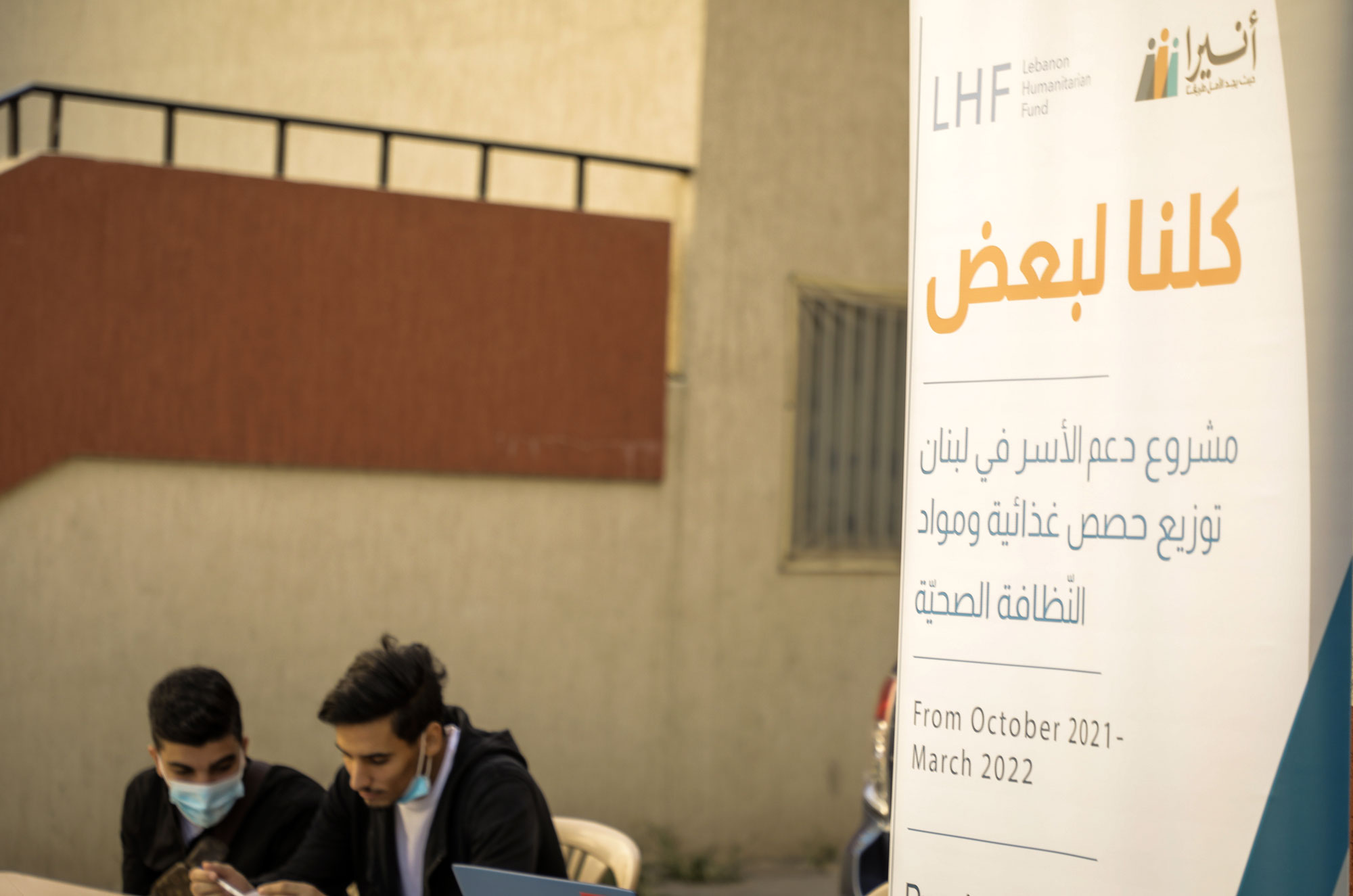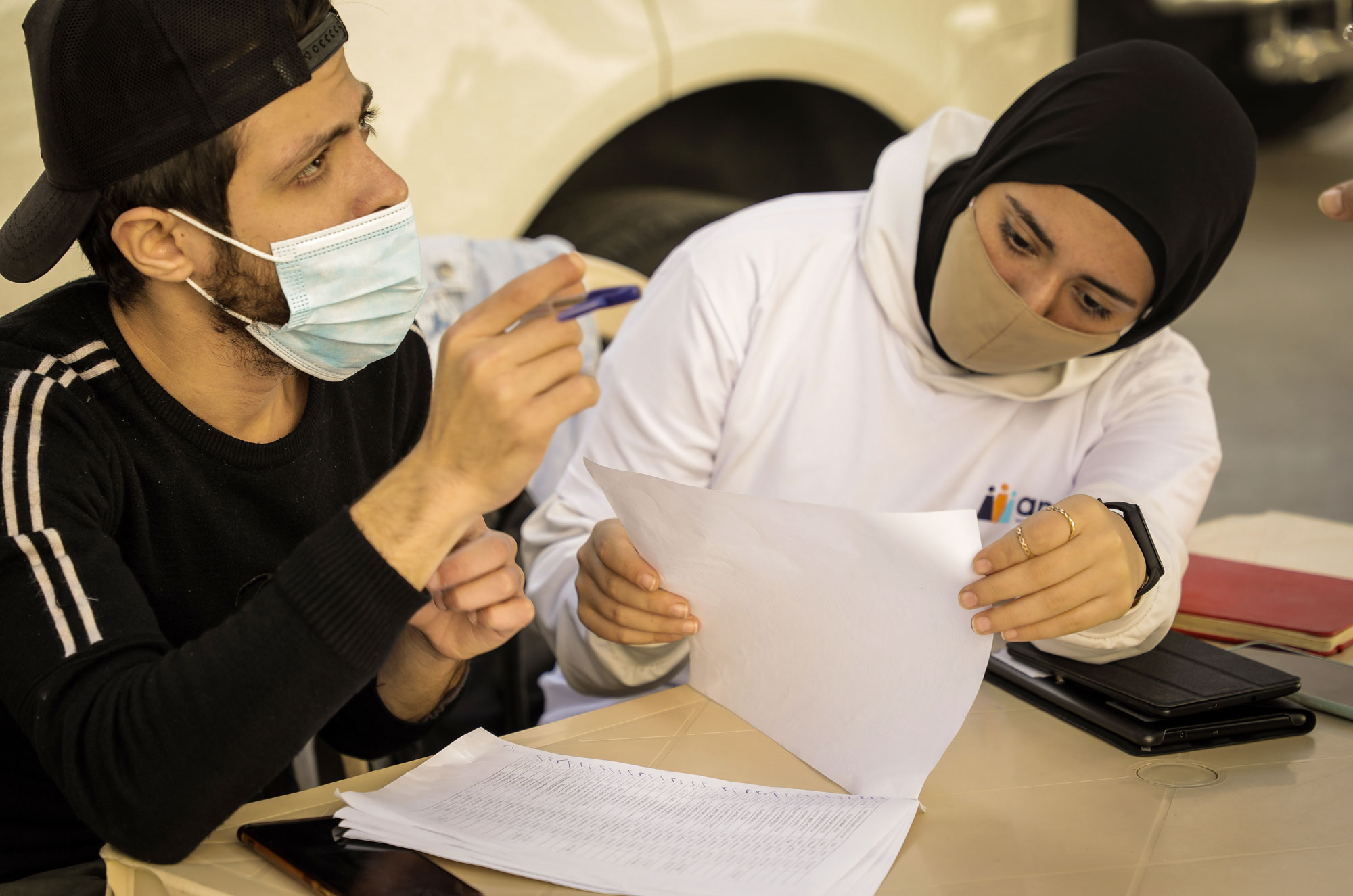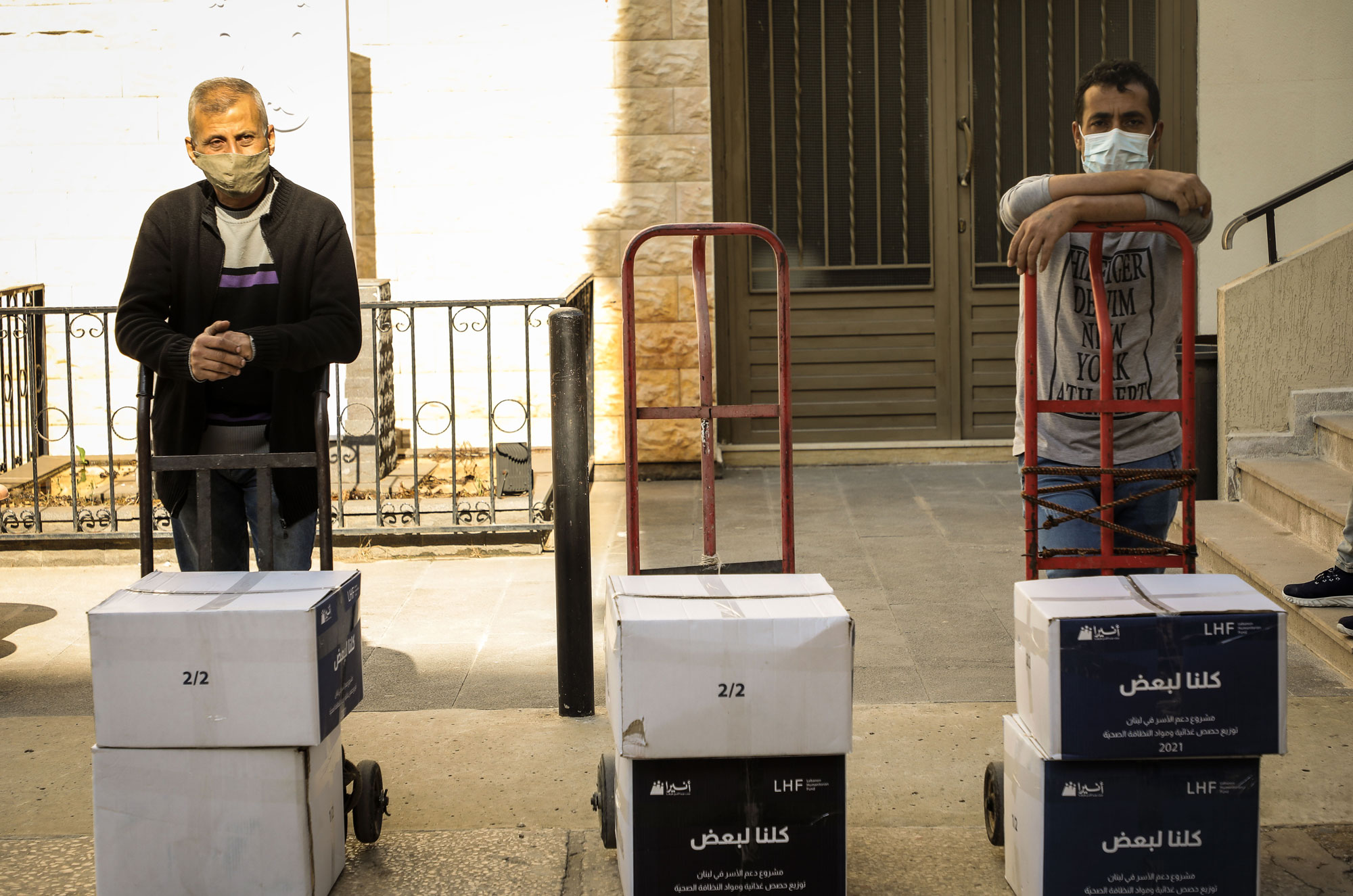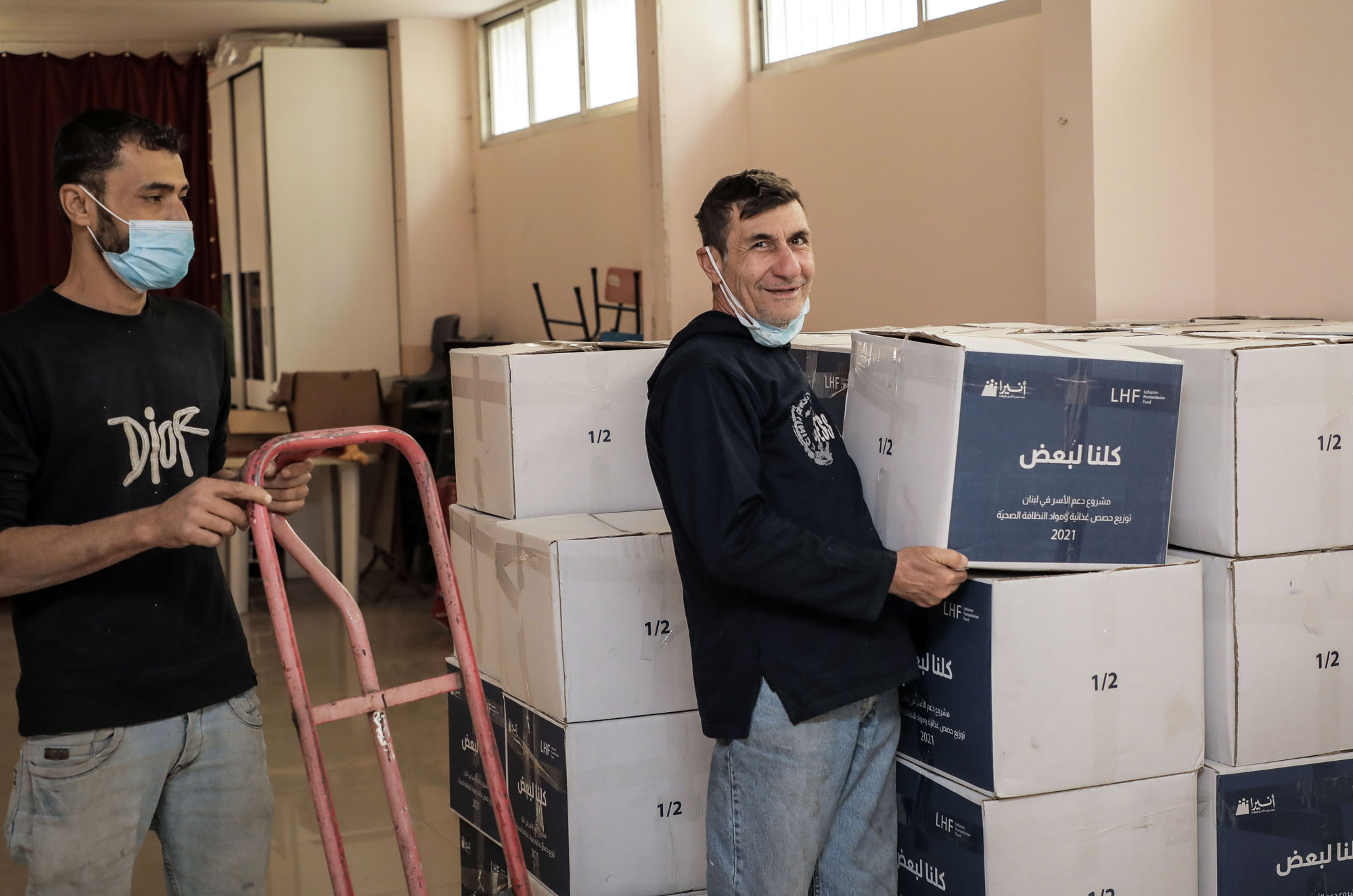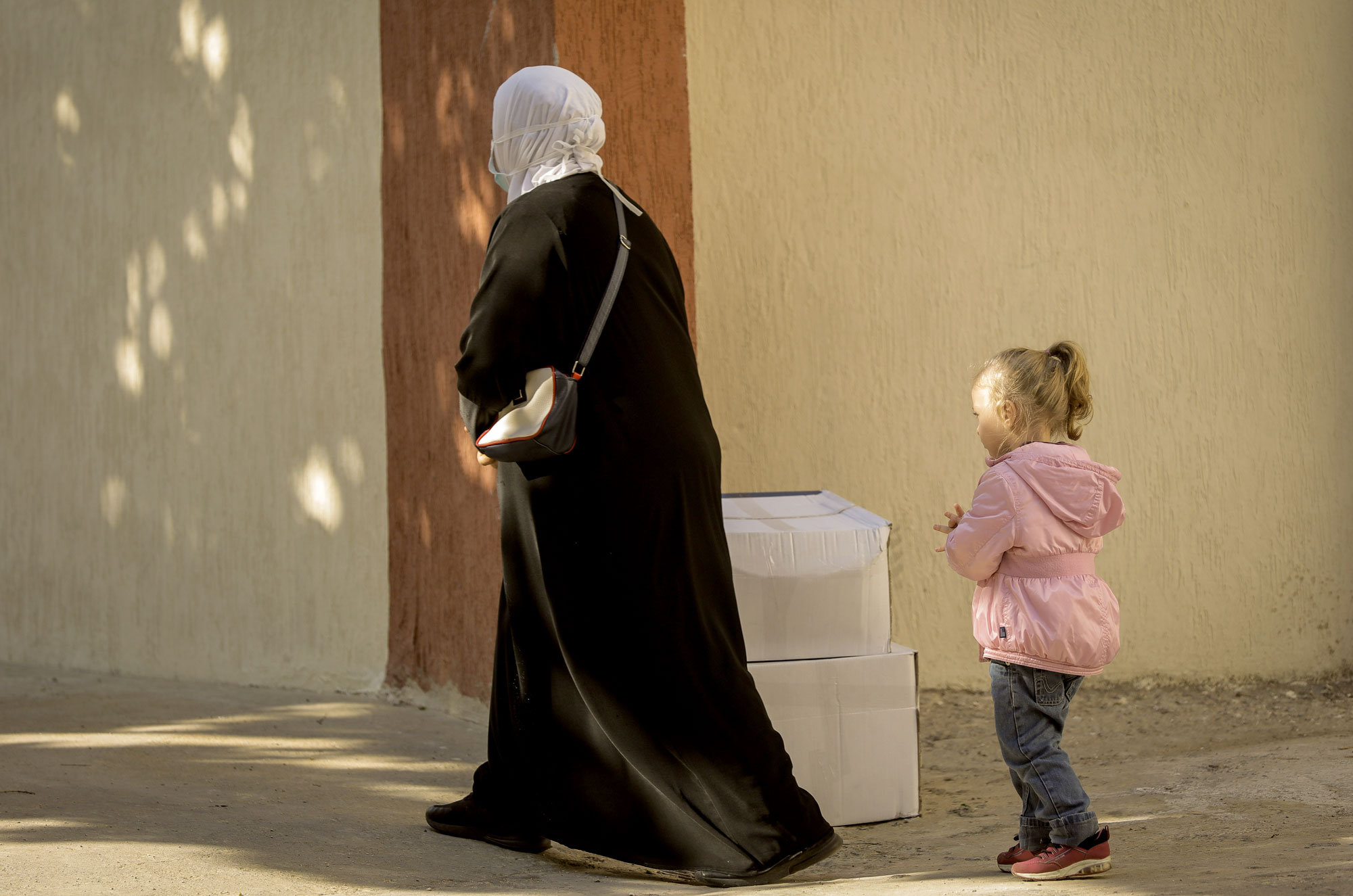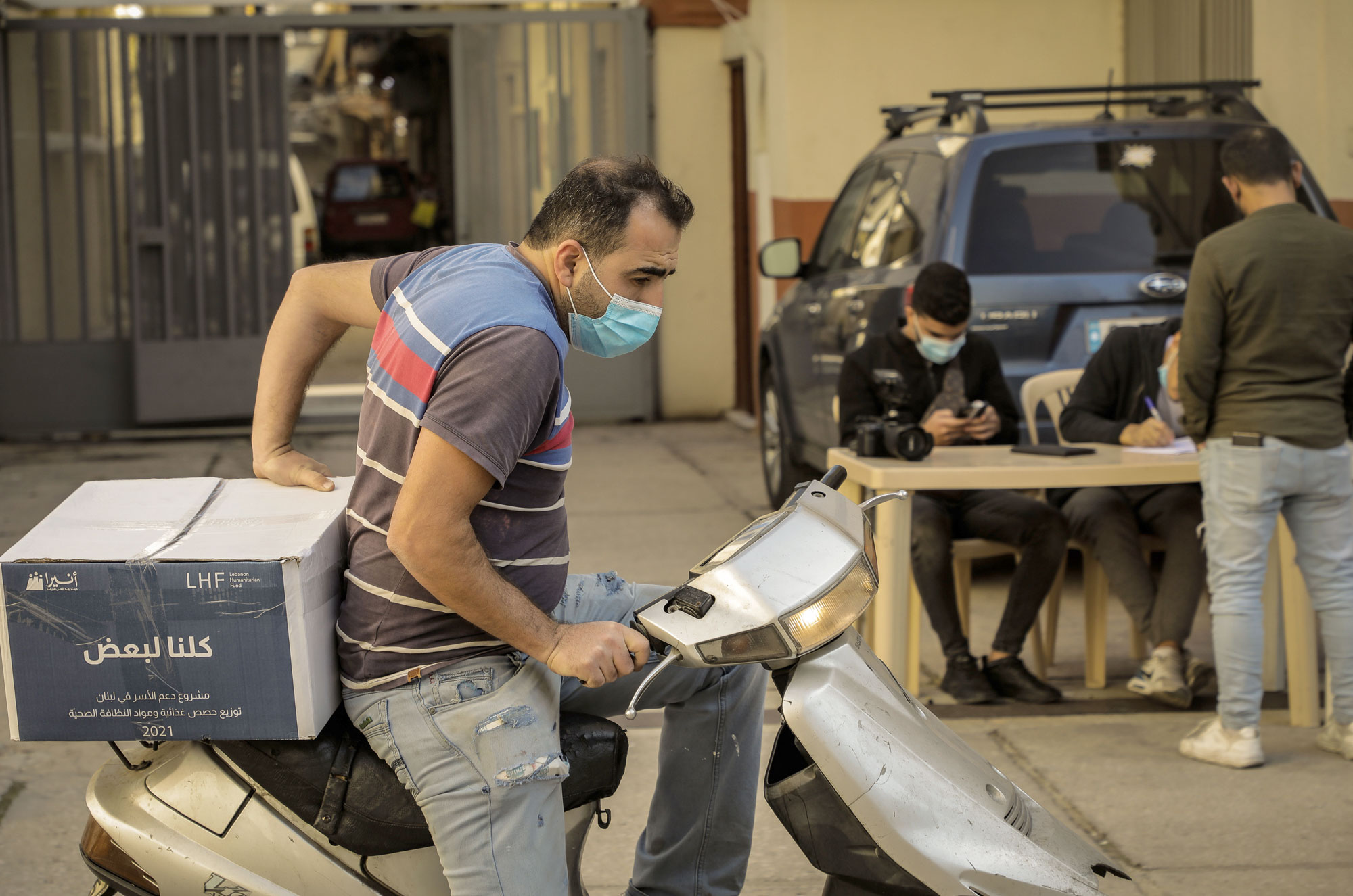COMMUNITY
Social Support Helps Families During the Holidays
Jan, 2022
Partnering with Lebanon Humanitarian Fund to deliver food and hygiene aid
Imagine fearing the holidays. Yes, the holidays — that magical time of the year that conjures childhood memories engraved in your heart, mind and taste buds as a joyful break from life’s worries. Imagine not being able to afford gifts or a holiday meal — nor being able to take a break from work. And having to live in constant survival mode amid a socioeconomic collapse, during a pandemic, in the vicinity of the site of an explosion which almost decimated your city.
This is reality for thousands of people in Lebanon, whether they celebrate the end-of-year holidays or not. To lessen their burdens and address the food security crisis in Lebanon, Anera launched a six-month-long project funded by UN OCHA’s Lebanon Humanitarian Fund (LHF).
Yendi Ghossein Choueifati, the deputy fund manager and program officer at LHF, says,
“Those already vulnerable refugee and Lebanese communities are being pushed further into worsening situations, with more than half the population now understood to be living under the poverty line, and increasingly resorting to negative coping mechanisms. With no foreseeable end in sight to the crises in Lebanon, the situation facing its most vulnerable will only continue to worsen.”

“With no foreseeable end in sight to the crises in Lebanon, the situation facing its most vulnerable will only continue to worsen.”
The project procures, organizes and distributes thousands of food and hygiene parcels each month to 832 households, serving a total of 4,160 individuals. Choueifati says this aid is life-saving for those most in need.
Anera selected four local charities across Beirut city as partners to ensure the effectiveness of the distribution. “We organized a series of work sessions and discussed project objectives, targets, activities, financial obligations and controls, and cross-cutting issues including capacity building,” says Heba Dabliiz, Anera’s project manager.
“Together, we were determined to prioritize the most vulnerable Lebanese and refugee families, those struggling to put food on the table.”
We recruited a team of 20 young participants and paid them to help identify and validate recipient households. We gave priority to those who are not currently benefiting from any food assistance program.
Anera procured the food parcels, hygiene kits, elderly kits, and baby kits. Each parcel’s contents are sufficient to supply a family of four for at least a month. The parcels contain dry goods, rice, oil, lentil, sugar, soap, disinfectants and more.
Each of the families picked up their parcel each month at the closest of the four distribution centers. The trusted local partners are Ibad Al Rahman Association, the Howard Karagheusian Commemorative Corporation, Association of Islamic Charitable Projects, and Irshad and Islah Islamic Association.

“We were determined to prioritize the most vulnerable Lebanese and refugee families, those struggling to put food on the table.”
Krikor Ainlian, a social worker and project coordination manager at Karagheusian, says,
“The situation in Lebanon has become unbearable. Many people have become unemployed. And even those who are still working cannot secure their family’s daily needs, especially with the inflation that has affected all basic needs like rent, generator bills, transportation, food and medicines.”
Abdullah’s family is amongst those benefiting from this project. He thanks the volunteers for their hard work and support. The father of four was working in the clothing production industry, which has been greatly impacted by the economic crisis.
“Living in Lebanon has become almost impossible,” Abdullah says. “The situation has become catastrophic and it has become impossible to secure our daily sustenance.”
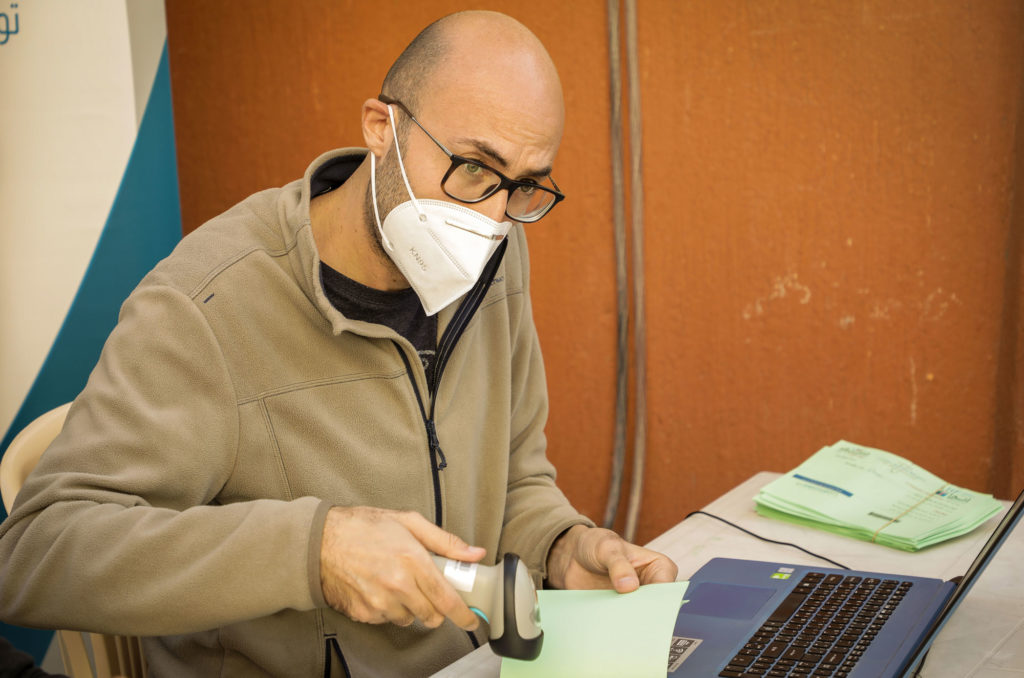
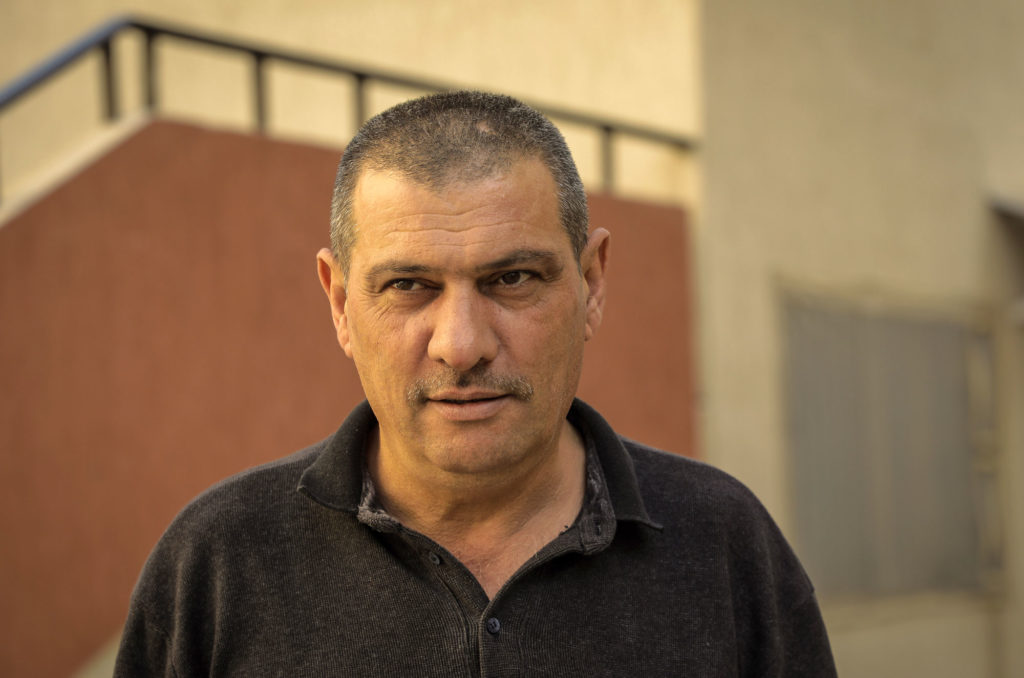
Caroline is a 35-year-old Lebanese-Armenian homemaker and mother of three children, ages 6, 9, and 14. Caroline and her husband spend any lira they manage to earn on keeping their kids in school. She says, “This food parcel is rich and varied. Actually we couldn’t have managed without it. We live day by day — it’s a struggle. We needed this support.”
Caroline still looks forward to the holidays and hopes that this month will bless Lebanon with peace and prosperity. “I love this country and refuse to leave it.”
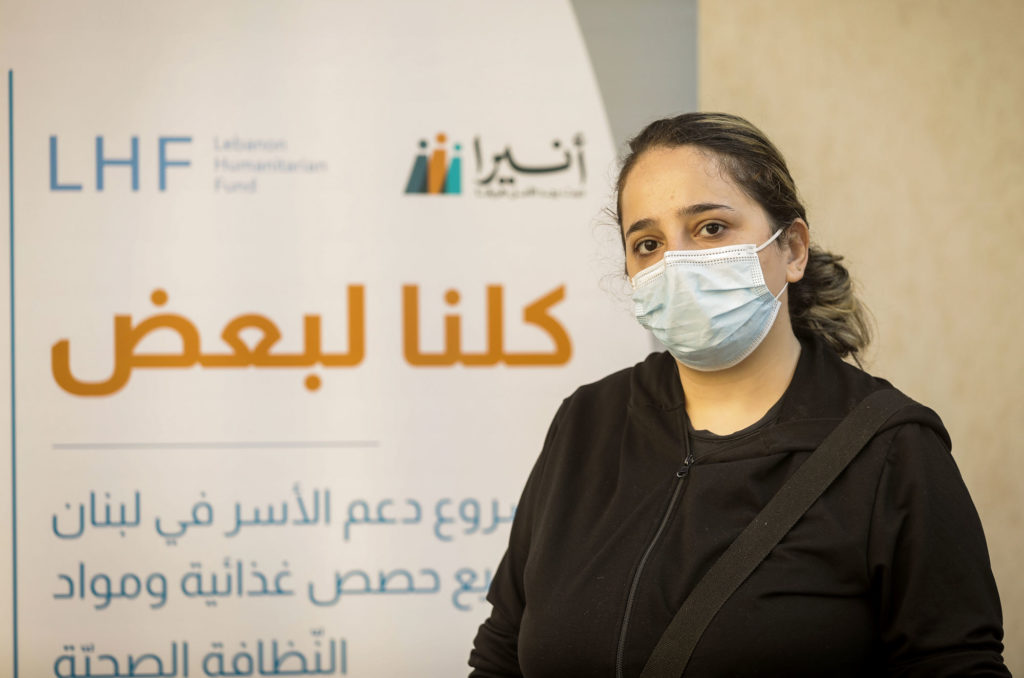
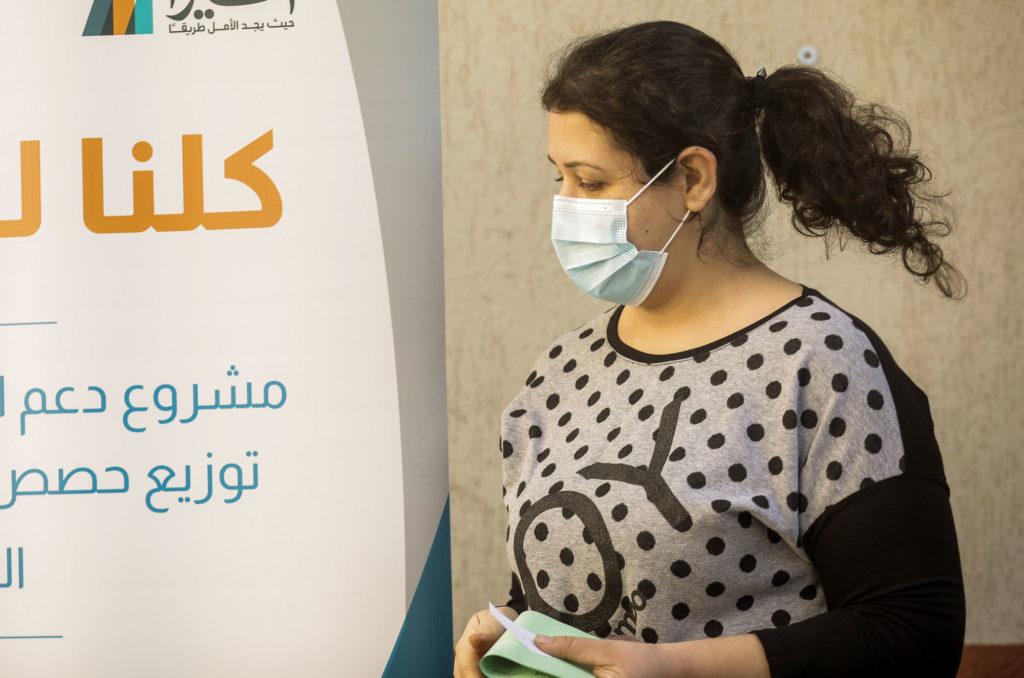
Another mother, Nari, is a Syrian refugee. Like many Syrians, she thought she would only be in Lebanon for just a short time, until things calmed down back in her native country.
“Our house in Syria got obliterated completely. We lost our entire life and all our belongings and memories,” she says.
Nari says that, prior to the crises, a 10,000 lira note was enough to feed her family for a day. But now the value of the currency has collapsed. She and her husband, a construction worker whose income depends on the vagaries of day labor, are hardly able to provide food for their son.
“Just as Syria is dear to my heart, so is Lebanon. I found safety in it, and I hope that the situation will improve here and that it will not experience what Syria is going through.”
Clearly, poverty knows no religion, nationality or creed. But neither does solidarity. Every single person involved in this project, including the LHF and Anera teams and the volunteers, as well as the recipient families, realize that we all need one another and that we are in this together.
“I strongly believe that this difficult time will end. We are doing our best as local NGOs to make sure that this dark cloud passes with the least possible damage,” Ainlian says.
